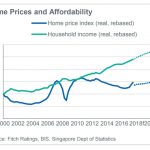Commercial loans are not given out just because you walk into a lender’s office with a great business plan
By: Phoenix Lee/
Commercial lending can be used for initial expenses, financing ongoing operations, or major investments in equipment, but financial institutions do not dish out commercial loans just because you walked into their office with a great business plan.
The most common – and generally the easiest – reason to get a commercial loan is for expanding your business, either by opening new locations, entering new territories, or otherwise increasing the scope of your current operations. Lenders see that your business is succeeding and are willing to loan you money to do “more of the same.”
Other reasons for a bank loan are to:
- improve facilities and conduct renovations
- invest in major equipment
- boost working capital
- build up inventory
Unfortunately, the time when you need money the most is when it’s hardest to get commercial loans: during the startup phase.
Table of Contents
You simply won’t get a new business loan by walking into a bank with an idea and enthusiasm – and the same goes for buying an existing business. You need to demonstrate an understanding of the industry, business acumen, and commitment. You need to be clear on how much you need. Thoroughly research costs and understand how the flow of cash in your business will influence your ability to repay a loan.
Before getting commercial loans, you should know what banks look for and prepare for it:
- Character and credit history of the borrower
- Loan documentation: financial statements, tax returns, and a business plan
- Cash flow history and projections for the business
- Collateral that is available to secure the loan
Get a credit report on yourself and your business. The smaller the business, the more closely the experience, know-how and overall character of the owner(s) will be evaluated. You are often judged on your personal credit – especially if your business does not have a long operating history.
You need to build a credit history to give banks an idea of how responsible you are – they will assume that you operate your business in the same manner that you manage your personal finances.
- You need to monitor what banks see when they pull your credit report.
- Check your credit report well in advance of seeking a loan because it can take up to four weeks for errors to be corrected.
- Continually monitor your credit to check for errors or omissions.
- Know your credit score. The higher the score, the lower risk you pose to lenders — and the lower interest rate you will be able to secure.
- Every commercial lending application you submit will be listed on your credit record – if you are turned down by one lender, the next will see that you were declined already. Make sure to do everything you can to get it right the first time.
 Be prepared to have several key documents on hand before you even set foot in a bank. These should include personal financial statements, tax returns, monthly cash flow projections, and a well-prepared business plan.
Be prepared to have several key documents on hand before you even set foot in a bank. These should include personal financial statements, tax returns, monthly cash flow projections, and a well-prepared business plan.
You will need financial statements for your business to show how much it’s worth and how much money you are making. Prepare detailed pro-forma statements. These give projections about what your business will be worth going forward. Be sure you have an updated business plan. Prepare a plan with as much detail as possible – including bios of you and your partners, your track record, your strategies and advantages, and more. Supply a well-organized plan of how you intend to use the loan.
https://www.icompareloan.com/resources/getting-personal-loans/
The most important component to a lender is whether the business’s ongoing sales and collections represent a sufficient and regular source of cash for repayment on a loan. A business’s cash flow will usually include not only the money that goes in and out of the business from its operations (sales less expenses), but also any cash flow from investments or financial activities (e.g., payments and receipts of interest and dividends, long-term contracts, insurance, sales or purchase of machinery and other capital changes, leases, etc.)
You may need to provide collateral. Collateral may be defined as property that secures a loan or other debt, so that the property may be seized by the lender if the borrower fails to make proper payments on the loan.
https://www.icompareloan.com/resources/personal-loan-restrictions/
In order to ensure that the particular collateral provides appropriate security, the lender will want to match the type of collateral with the loan being made. For example, the useful life of the collateral will typically have to exceed, or at least meet, the term of the loan. Consequently, short-term assets such as receivables and inventory will not be acceptable as security for a long-term loan, but they are appropriate for short-term financing such as a line of credit.
How to Secure Commercial Loans Quickly
If you are searching for a business expansion loan, the loan consultants at iCompareLoan can set you up on a path that can get you a it in a quick and seamless manner. Our loan consultants have close links with the best lenders in town and can help you compare various loans and settle for a package that best suits your needs. Find out money saving tips here.
Our Affordability Tools help you make better property buying decisions. iCompareLoan Calculators help you ascertain the fair value of a property and find properties below market value in Singapore.
If you are looking for a new home loan or to refinance, our Mortgage brokers can help you get everything right from calculating mortgage repayment, comparing interest rates all through to securing the best home loans in Singapore.
And the good thing – whether it is business expansion loans or mortgage loans – is that all our services are free of charge. So it’s all worth it to secure a loan through us for your business expansion needs.
Contact us for advice on a new home loan.
Contact us for home loan or refinancing advice.






